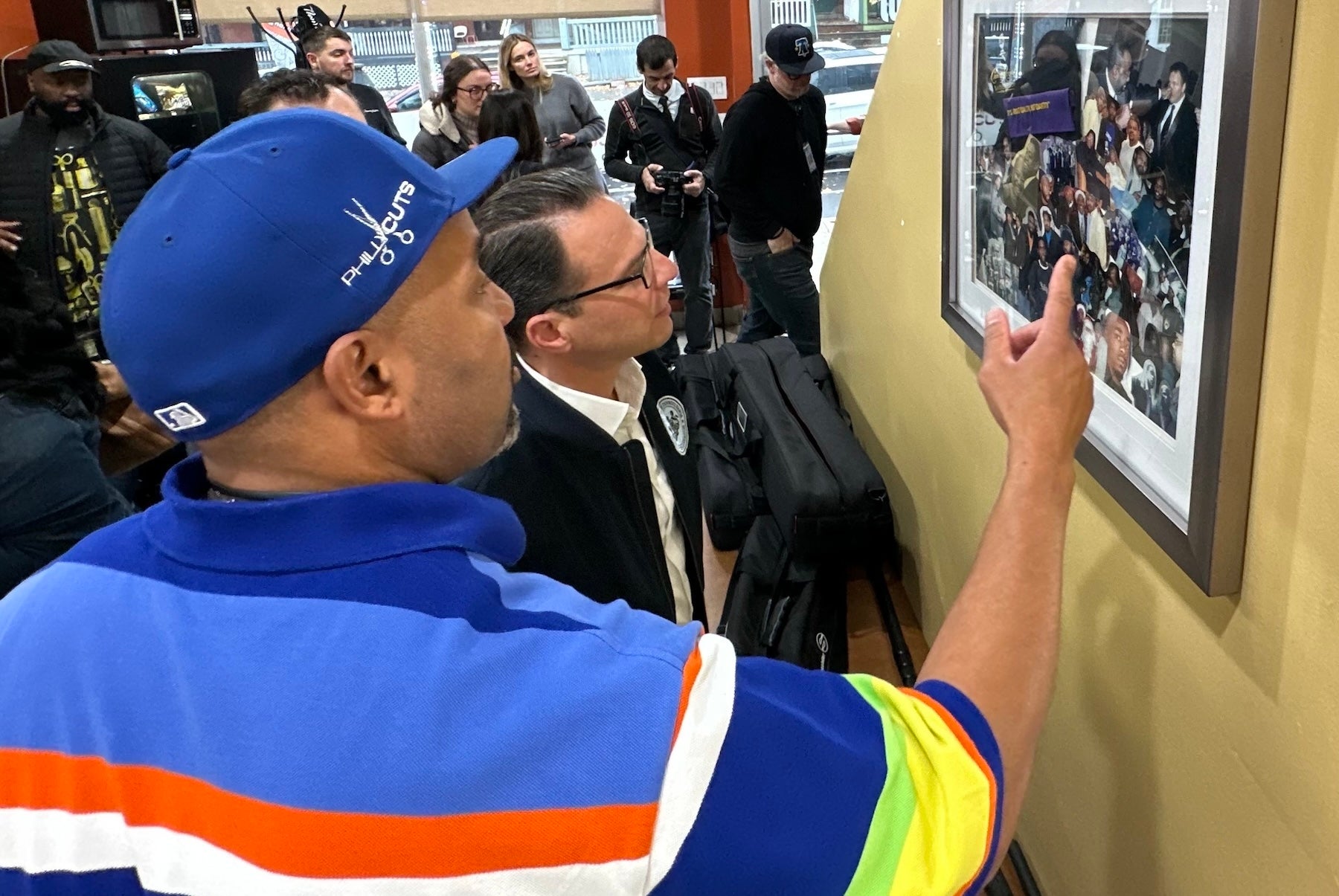World
The Kentucky Derby is turning 150 years old. It’s survived world wars and controversies of all kinds

LOUISVILLE, Ky. (AP) — As a record crowd cheered, American Pharoah rallied from behind and took aim at his remaining two rivals in the stretch. The bay colt and jockey Victor Espinoza surged to the lead with a furlong to go and thundered across the finish line a length ahead in the 2015 Kentucky Derby.
“There’s nothing like winning the Kentucky Derby,” recalled Espinoza, a three-time winner. “To me it’s the most important thing in horse racing.”
America’s longest continuously held sporting event turns 150 years old this Saturday. By age, it’s got the Westminster dog show beat by two years. The Derby has survived two world wars, the Depression and pandemics, including COVID-19 in 2020, when it ran in virtual silence without the usual crowd of 150,000.
The first Saturday in May is Derby Day with all its accompanying pageantry, including fancy hats, fans dressed in their Sunday best, mint juleps served in souvenir glasses, the crowd singing “My Old Kentucky Home” and the hand-sewn garland of red roses for the winner. The Derby was the second-most watched sporting event of 2023 behind the Super Bowl.
“I’ve heard a lot of people say it’s on their bucket list to attend and the one horse race that they watch every year,” said trainer Todd Pletcher, a two-time Derby winner who has this year’s early favorite in Fierceness.
One chance only
Part of what makes the Derby unique is horses have just one chance to run in it since only 3-year-olds are eligible. It’s also the only race in America with a 20-horse field. Since 2013, horses have to accumulate points in qualifying races to earn their way in. Previously, money won in graded stakes races decided the field.
“It’s very tough to keep them on the path to get to the Derby, get into the Derby and then, hopefully, it all goes well, and you get a good, clean trip,” said trainer Brad Cox, a Louisville native who will saddle Catching Freedom, Encino and Just a Touch on Saturday.
Louisvillians take pride in their city’s tradition that dates to 1875, whipping up at-home versions of such high-calorie delicacies as Benedictine dip (grated cucumber, cream cheese, sour cream and mayo), Derby pie (chocolate chips and nuts) and cocktails if they’re not going to the track.
Diversity struggles
Thirteen of the 15 jockeys in the first Derby were Black, including Oliver Lewis, who rode Aristides to victory in front of 10,000 cheering fans in 1875.
Black riders won 15 of the first 28 Derbies, and then there were none from 1920-2000. As Jim Crow laws were introduced, segregation spread throughout the nation, including horse racing where it was nearly impossible for Black riders to get licensed.
The last Black jockey in the race was Kendrick Carmouche in 2021.
Black trainers also dominated the Derby’s early years, winning seven of the first 17 from 1875-1891. On Saturday, Larry Demeritte will be just the second since 1951 and 17th overall when he saddles long shot West Saratoga.
Protestors demanding racial justice and an end to police brutality demonstrated outside Churchill Downs in 2020 and 2021 after Breonna Taylor, a 26-year-old Black EMT, was killed by police in a botched drug raid at her Louisville home.
Women have been a sporadic presence in the Derby, too. Only six have ridden in the race, the last being Rosie Napravnik in 2014. Seven women have trained Derby runners, with Vicki Oliver last doing so in 2021.
“It’s an incredibly hard race just to get into, let alone win,” Cox said.
Horse safety
Cox was declared the 2021 winner, nine months after the race when Medina Spirit was disqualified for a failed drug test — only the second such DQ in race history — and Mandaloun was elevated to first.
“We’re all trying to win this race to experience the thrill of victory,” Cox said, “and we’ve yet to do that.”
The Derby’s image took a major hit last year when 12 horses died at Churchill Downs in the weeks surrounding the race. An independent investigation cleared the track of any fault, and no singular cause was found. The track continued training, but moved the remainder of its spring racing meet to western Kentucky.
The trainer who owns a record-tying six victories isn’t in Louisville for the third straight year. Bob Baffert has been banned by Churchill Downs Inc. ever since Medina Spirit’s failed drug test upended the 2021 results.
Baffert fought his original two-year suspension in court, but lost a year ago. Last summer, the track said it was extending the suspension through 2024. It cited “continued concerns regarding the threat to the safety and integrity of racing he poses.”
Sparkling showcase
Churchill Downs Inc., the track’s publicly traded parent company with shareholders to satisfy, has spent $500 million renovating and modernizing over the last decade. Its newest showpiece is the $200 million paddock, where fans who don’t mind dropping up to $12,000 can dine and watch the horses being saddled before the races.
In its 150th year, the Derby’s purse has been boosted to a record $5 million, with $3.1 million going to the winning owner.
Despite all the changes with the race, the track and the intrusion of current events over the years, the first Saturday in May endures.
“The one thing that continues is you got 20 of the best 3-year-olds from around the world,” said trainer Doug O’Neill, a two-time Derby winner.
“It seems like the one mainstay that we can really rely on,” Pletcher said.
___
AP horse racing: https://apnews.com/hub/horse-racing
Beth Harris, The Associated Press










